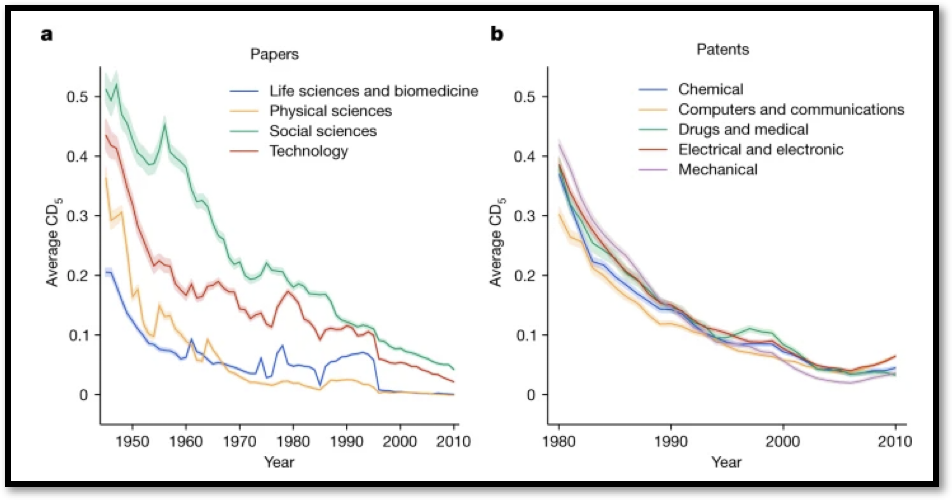


DENVER, COLORADO - Over 50 million new scientific papers have been published in the last 70 years, alongside over 5 million patents. There has also been a significant increase in scientific papers and patents published in recent years. The quantity of such papers can be misleading, however - one should instead focus on disruptive science, which refers to research that fundamentally changes the world’s understanding of a particular field, often rendering previous knowledge obsolete.
Thus, while the number of published papers still grows exponentially, evidence suggests a stagnation in the production of disruptive research since 1945.1
Multiple studies - including one from Nature Magazine shown in the graph below - indicate a large decline in research productivity in cutting-edge fields such as pharmaceuticals and semiconductors. Recent publications, patents, and grant applications also mostly flag decreased originality, integration of diverse knowledge, and critical innovation factors. The time gap between a discovery and the awarding of a Nobel Prize has also widened, implying higher standards for contemporary contributions as compared to the past.

Decline of disruptive science and technology
Source https://www.nature.com/articles/s41586-022-05543-x
The 'peer review paradox' is a thought-provoking phenomenon that appears to lead to a decline in groundbreaking scientific discoveries.2&nbs
The content herein is subject to copyright by The Yuan. All rights reserved. The content of the services is owned or licensed to The Yuan. Such content from The Yuan may be shared and reprinted but must clearly identify The Yuan as its original source. Content from a third-party copyright holder identified in the copyright notice contained in such third party’s content appearing in The Yuan must likewise be clearly labeled as such. Continue with Linkedin
Continue with Linkedin
 Continue with Google
Continue with Google







 501 views
501 views










